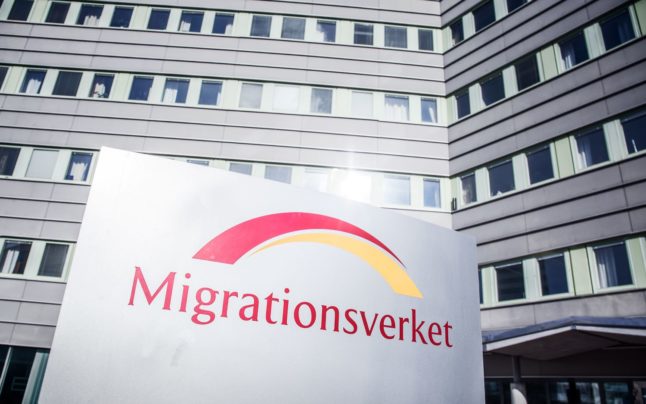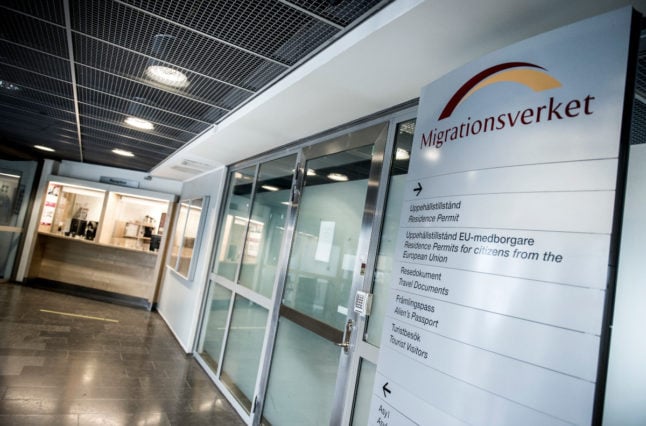LIVING WITH A PARTNER OF FAMILY MEMBER
You can get a residence permit to move to a family member in Sweden (also unofficially known as a sambo permit). This most commonly means a permit to live with a partner or spouse or a child aged under 18, but in exceptional circumstances may include other family members.
You can also apply for one of these permits if you’re planning to marry or become cohabiting partners with someone in Sweden, although you might need to explain to the Migration Agency why you weren’t already living together.
The family member you’re moving to doesn’t have to be a Swedish citizen, but they do need either permanent residency or a temporary residence permit as a refugee or person in need of subsidiary protection.
You will need documents proving your relationship. The exact documents you need vary, depending on what kind of relationship it is. For couples, it might include a marriage certificate or copies of rental contracts proving you have previously lived together. If you haven’t previously lived together, you must also attend an interview.
The person you are going to be living with also needs to prove that they can support you by having suitable accommodation and a large enough salary to support you both. This is the case regardless of any income or assets you as the permit applicant have.
You also pay a fee of 2,000 kronor (1,000 kronor for children under 18) which is refunded if your application is refused. Find out more about permits for moving to a family member here.
How long will it take?
As of November 2023, 75 percent of applicants moving to a partner received a decision within 18 months. Factors such as which family member you are moving to, how well you can prove your relationship (including documents showing you have lived together), which country you are from and what your family member’s residence status in Sweden is may all affect the processing time.
Can I stay in Sweden while I wait?
You can’t usually apply for this kind of residence permit if you’re already in Sweden, but there are exceptions to this rule – such as for people already living in Sweden with a valid residence permit, including a work permit.
“As a general rule, an applicant for a residence permit to move to someone in Sweden needs to apply for this from outside Sweden, although there are some exceptions which mean it’s possible to apply despite already being in Sweden,” Migration Agency press spokesperson Vera Björk told The Local.
“If you have a work permit, the Migration Agency will make an individual decision as to whether there are reasons why you should be able to get a new permit without leaving Sweden. We will, among other things, look at how long you have lived in Sweden and whether you’ve had multiple temporary residence permits.”
You should also be able to work in Sweden while you wait for your new permit to be approved, although again there are exceptions.
“If you’ve had a work permit for at least six months you have the right to keep working in Sweden while the Migration Agency processes your application,” Björk said.
“When we process an application for a change of status – changing from a work permit to a permit to join a family member, in this case – the applicant must for example be able to show that they have fulfilled the requirements of the previous work permit.”
GETTING A WORK PERMIT FOR ANOTHER JOB
If it doesn’t look like your current employer will be able to offer you a salary above the threshold, you may be lucky enough to find another employer in Sweden who can.
This may be a bit of a longshot depending on your industry and job role, but could be easier if your current salary is only slightly below the threshold.
If you already have a work permit in Sweden, then it is tied to that specific role at that specific employer for the first 24 months, meaning that you’ll need to apply for a completely new work permit if you change role or employer during this period.
After the first 24 months the rules are slightly different. If you change employer but stay in the same role, you don’t need to reapply for a work permit, but if you change role then you’ll need to apply for a new permit. Be aware that if you apply for a new work permit, even if you’re already working in Sweden, you will need to meet the rules at the time you apply for the new permit, rather than the rules you had on your old permit.
This means that you’ll need to meet the new salary requirement, as well as other requirements for employee insurance and maintenance for family members, as well as paying for a new permit application, which costs around 2,000 kronor depending on the industry. Find out more about applying for a new work permit here.
Can I stay in Sweden while I wait?
Yes, as long as you apply for your new work permit while your old one is still valid. You can also start working at your new job while you wait for your permit to be processed.
How long will it take?
As of November 2023, 75 percent of employees who applied online received a response on their application within 15 months. Factors such as which industry you will be working in, whether or not the employer is certified with the Migration Agency, and whether or not the application included all the necessary information all affect the processing time.
STUDYING IN SWEDEN
Another option, if you were planning on studying in Sweden at some point anyway, is to apply for a permit to study in Sweden.
You’ll need a place on a course of study in Sweden, at a university, university college, higher vocational education or at a folk high school at the post-secondary level, which means you need to apply and be accepted.
Be aware that there are earlier deadlines for international students than for those in Sweden, in order to give you time to get your paperwork sorted.
As well as proof of your place to study, you need to have paid the tuition fees – you’ll be considered an international student – and have proof that you can support yourself during your studies, as well as proof of health insurance.
If you are granted a study permit, you can work in Sweden while your permit is valid without also needing a work permit (although you are of course expected to study full time) in order to support yourself.
You’ll also have to apply for permits for any family members who will be living with you in Sweden while you study, as long as you can provide proof of their identity and that you have sufficient funds to support yourselves. Find out more about applying for a student permit here.



 Please whitelist us to continue reading.
Please whitelist us to continue reading.
Member comments